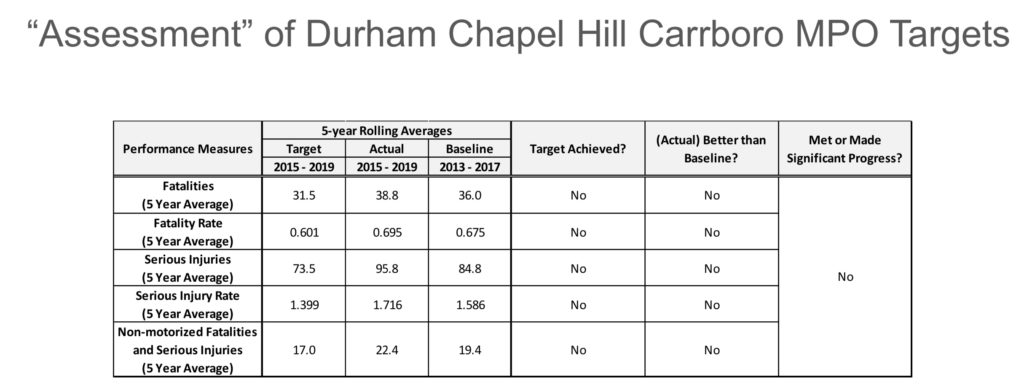Here is a look at some of the local government meetings scheduled for this week, May 9-13, 2022:
Chapel Hill Town Council
The Chapel Hill Town Council will be holding a virtual work session on Wednesday (May 11) at 6:30 pm — view the agenda here, access the Zoom here if you want to comment, and it’s also streamed on the Town’s YouTube channel. Highlights include:
- Discussion of the town manager’s recommended budget for Fiscal Year 2022-23, which begins on July 1. The budget proposes an 8.9 percent increase in spending and includes a half-cent increase in the property tax, from 51.4 cents to 51.9 cents. Some of the additional revenue pays for the staff pay increases that council approved several months ago; these increase were to help make the town’s pay schedule competitive with other jurisdictions. Additional funds go towards climate action ($80,000), downtown improvements ($100,000), bike/pedestrian safety ($75,000), Vision Zero ($50,000), parks maintenance ($50,000), and the transit fund (15.3 percent increase). The meeting should have some good discussion about town priorities.
- Discussion of the town’s use of American Rescue Plan funding. Through several meetings, council has come to a rough consensus on how to spend the $10 million in federal funds allocated to the Town, and the staff presentation suggests spending $2.5 million on affordable housing/homelessness initiatives, $2.5 million on parks & recreation (which could involve replacement of the rapidly aging Cedar Falls artificial turf, an adaptive playground, or a splash pad); $1 million on bicycle/pedestrian/greenway infrastructure (which could include improvements to West Franklin Street, the eastern part of phase 3 of the Morgan Creek Trail, or the Ephesus Church Road sidewalk), $1 million on town infrastructure needs, $1 million on downtown revitalization, and other items. Following this discussion, council will make a final decision in June.
- Council will hear an evaluation on the expedited review process for affordable housing. Back in September 2021, four council members filed a petition to expedite the production of affordable housing and missing middle housing, including the use of a new application pathway for affordable units that accelerates the review process so that it takes less than nine months. For most projects, the multiple levels of advisory board, council, and staff review means that projects take much longer. Staff trialed a new process for the Jay Street and Trinity Court affordable housing proposals which consolidated advisory board review, prioritized staff time towards review of the projects, and prioritized meeting scheduling. It was effective — these projects proceeded from formal application submission to council approval in around five months. The staff report has more detail on the impact of this pilot project, including a look at how some of our neighboring jurisdiction accelerate affordable housing review and feedback from developers. (One comment noted that the length of the review process discourages developers from entering the Chapel Hill market, something we discussed on the blog a few days ago.)
- An update from the Booker Creek Working Group. This group was formed following pushback to council’s original plans to build flood storage facilities in the Lower Booker Creek area. The meeting agenda doesn’t include any details about this item. (The working group’s webpage is here.)
Carrboro Town Council
The Carrboro Town Council will meet Tuesday (May 10) in person at Carrboro Town Hall, but you can also stream the meeting on YouTube. View the agenda here. Highlights include:
- Consideration and possible adoption of Carrboro’s first comprehensive plan, Carrboro Connects 2022-2042. The product of several years of public engagement and council consideration, the adoption draft, if approved by council, will help direct the town’s land use decisions over the next couple of decades. A summary of revisions from prior versions of the plan are part of the meeting agenda. For some thoughts on an earlier draft, check out City Beautiful 21’s thorough blog post about the plan’s land use chapter.
- An update on the Orange County Transit Plan (a similar presentation has already been made to the Chapel Hill Town Council).
Orange County
Orange County is holding a work session on Tuesday (May 10) at the Whitted Meeting Room at 300 West Tyron Street in Hillsborough; it can be streamed as well. It’s budget season, so the main item on the agenda is discussion of the county manager’s recommended Fiscal Year 2022-23 budget. The total proposed budget is $312.3 million, an increase of about 8 percent over last year’s budget, and reflects strong growth in property and sales tax revenues. The front of the budget document has a 15 page letter from the county manager describing the changes in the budget.
Durham-Chapel Hill-Carrboro MPO
The board of the Durham-Chapel Hill-Carrboro Metropolitan Planning Organization (DCHC MPO) holds its monthly meeting on Wednesday, May 11. It’s a virtual meeting that can be streamed on YouTube. There are several highlights on the agenda:
- A public hearing on and approval of the Triangle Bikeway Study, a proposal for a 23-mile path between Chapel Hill and Raleigh primarily along NC 54 and I-40. Take a look at the study report and public comments received during the just-concluded 30-day comment period.
- A discussion on transit governance in Durham and Orange counties. During development of the Durham-Orange Light Rail Transit project, concerns were revised about the allocation of decision-making and work authority among the MPO, GoTriangle, and the counties, and the lack of authority given to other entities such as the Town of Chapel Hill (including Chapel Hill Transit) and the City of Durham. The agenda includes an update memo and the presentation that will be given at the meeting. An unresolved point is who should have formal approval authority — the towns along with the transit providers, or just the transit providers.
- A discussion on roadway safety.
Back in January, a coalition of local advocacy groups wrote a letter to the MPO about the inadequacy of the state’s efforts to improve hte safety of our roads. The state seeks to reduce roadway fatalities and serious injuries by one half by 2035, and to get there, it has established very ambitious goals for 2022, including a reduction in the fatality rate by more than 13 percent and in the rate of serious injuries by more than 21 percent. While ambitious goals, they are entirely unrealistic, as fatalities and serious injuries have been increasing over the last several years. In the groups’ view, NCDOT had no realistic plan to achieve its “Vision Zero” goals. The groups asked the MPO to work with NCDOT to evaluate the agency’s current plans and procedures and identify ways to meet these goals.
This meeting is the first follow-up to that request. In its presentation, NCDOT staff will present statewide and regional data trends and identify its funding programs and internal procedures for selecting and implementing safety projects. It acknowledges that the region is meeting none of its safety goals. Unfortunately the presentation contains little insight on identifying changes that could be made to improve safety, not only by making band-aid fixes to dangerous areas but also through rethinking how NCDOT implements safety into the design of its roads, particularly at intersections.

It’s a welcome first step and the presentation acknowledges that there’s much action needed. It will be interesting to hear feedback from MPO board members and learn how NCDOT plans to improve its safety processes to meet its ambitious goals.

